About the project

Theater of Law
Dramatic Reading of Eumenides, by Aeschylus
Translated and Directed by Bryan Doerries
A Collaboration with The Forum on Law, Culture, & Society at NYU School of Law
The Theater of Dionysus, where thousands of Athenians gathered each spring during the fifth century BC to watch plays by the great tragedians Aeschylus, Sophocles, and Euripides, was—at its core—a Theater of Law. The rhetorical nature of the plays and the powerful language within them was forged in the crucible of Athenian courts, in which citizens argued, often theatrically, on behalf of their causes. In ancient Greece, there was a profound interdependence between the theater and the law, and the concurrent development of tragedy and the modern legal system during the fifth century BC is by no means a coincidence. Aeschylus’ Oresteia trilogy, which culminates with his Eumenides, celebrates the birth of trial by jury, while leaving room for audiences—both ancient and contemporary—to interrogate, unpack, and discuss the inherent challenges and injustices built into the western legal system from the very beginning.
We have victims,” said Sarah Khan, an assistant district attorney in New York, and “we can’t always make them whole.” Even after a jail sentence is announced, she said, “A lot of victims don’t feel satisfied. Because the thing that’s making them hurt is not going to go away by sending that person to jail.
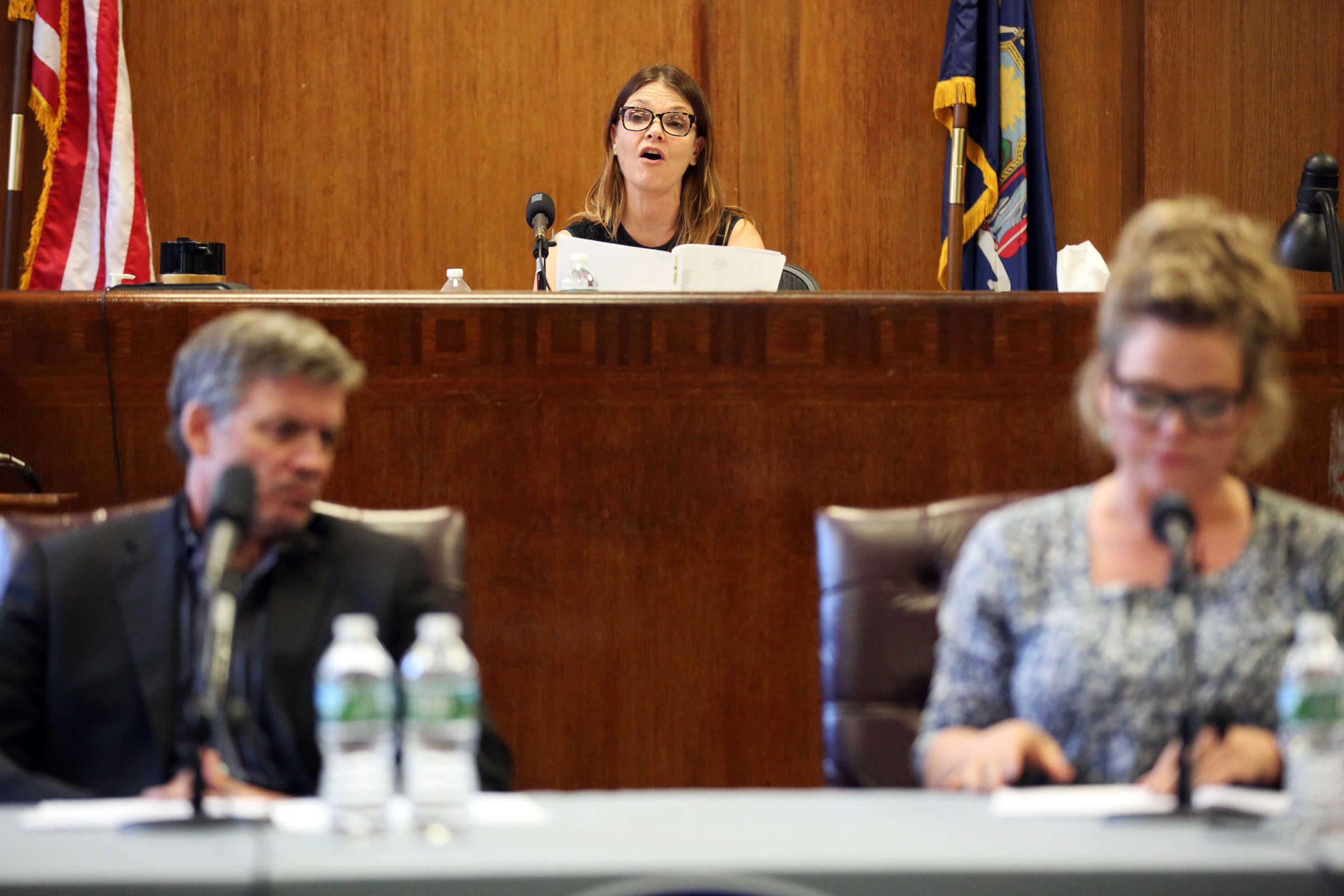
About the play
-
Eumenides by Aeschylus
Aeschylus’ Eumenides dramatizes the trial of Orestes, a young man who is tormented by the avenging Furies after killing his mother Clytemnestra in retaliation for his father Agamemnon’s death. Orestes seeks refuge in the temple of Apollo, who brings him to Athens and defends him before a jury of twelve Athenians. The goddess Athena hears arguments from both sides, including the forceful prosecution of the Furies, who maintain that the social order of the city will unravel if the matricide goes unpunished. Ultimately, after the jury is hung, Athena casts the deciding vote, acquitting Orestes of his crime and, after doing so, she must also find a way to appease the avenging Furies, so that their violent and destructive anger is not unleashed upon the city.
Theater of Law Highlights

Manhattan District Attorney Cy Vance responds to Theater of Law
New York County Criminal Court / 2017
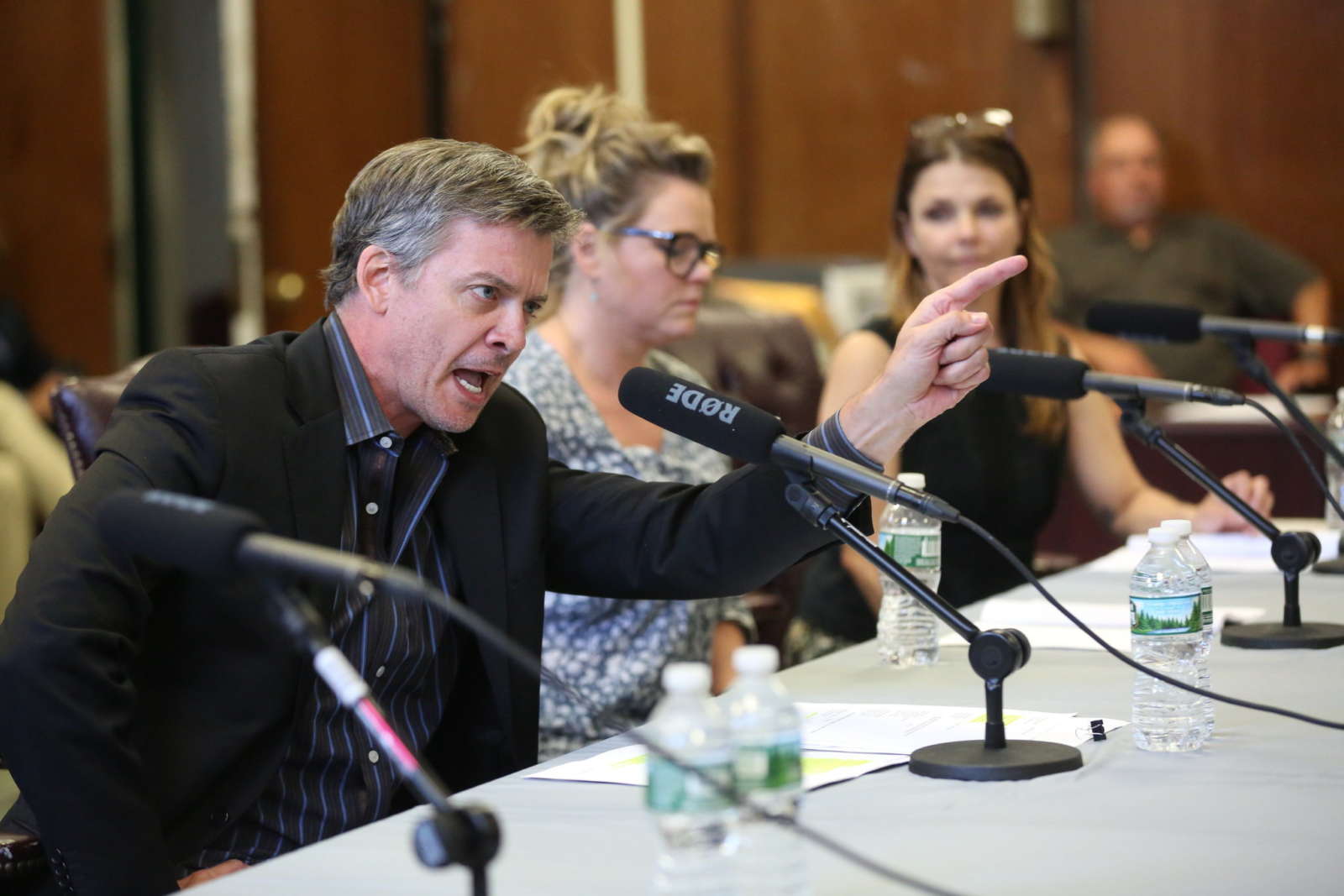
Manhattan’s District Attorney vs. Aeschylus
Manhattan court room / 2017
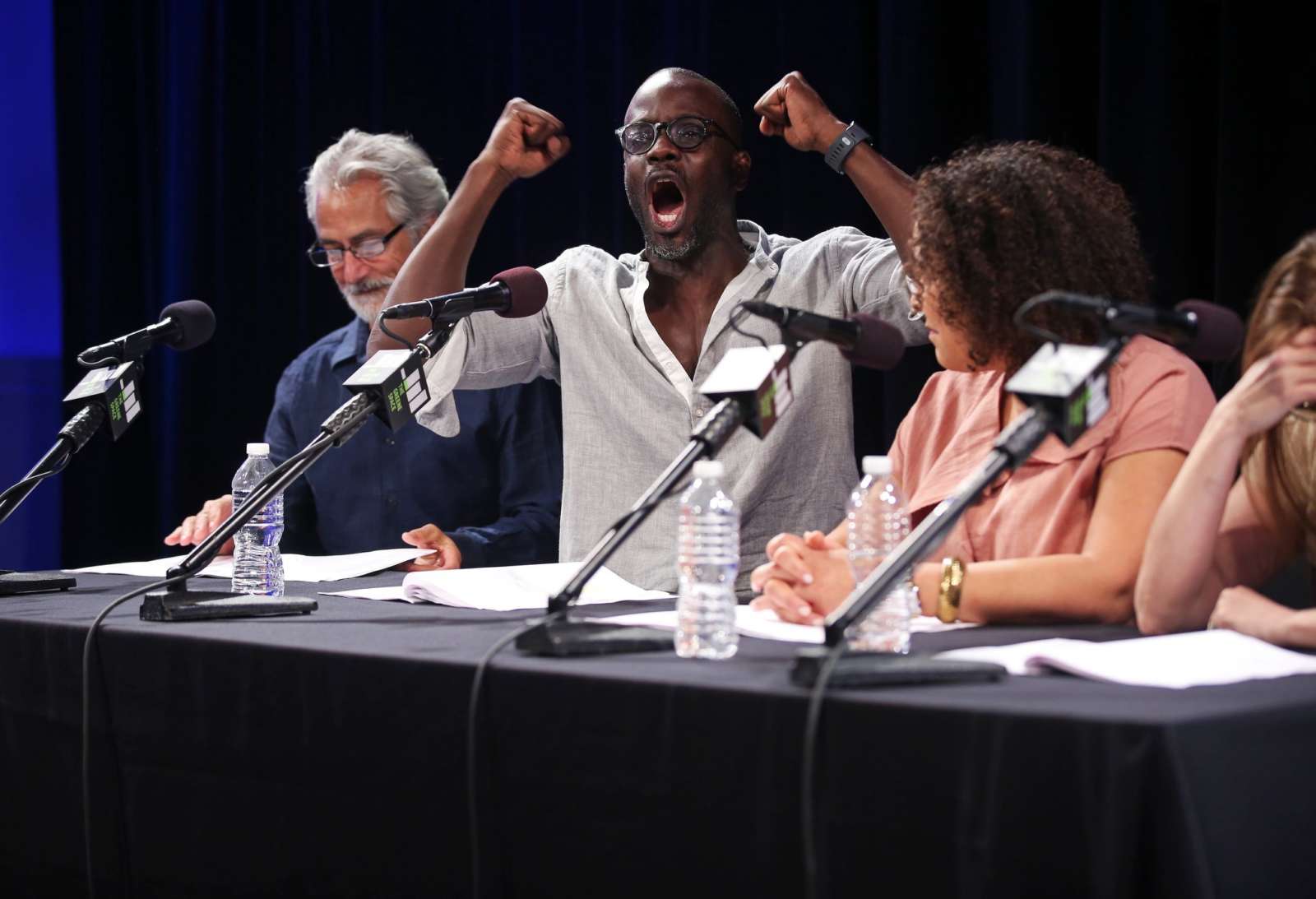
Ato Essandoh as Orestes
The Greene Space at WNYC/WQXR / 2018
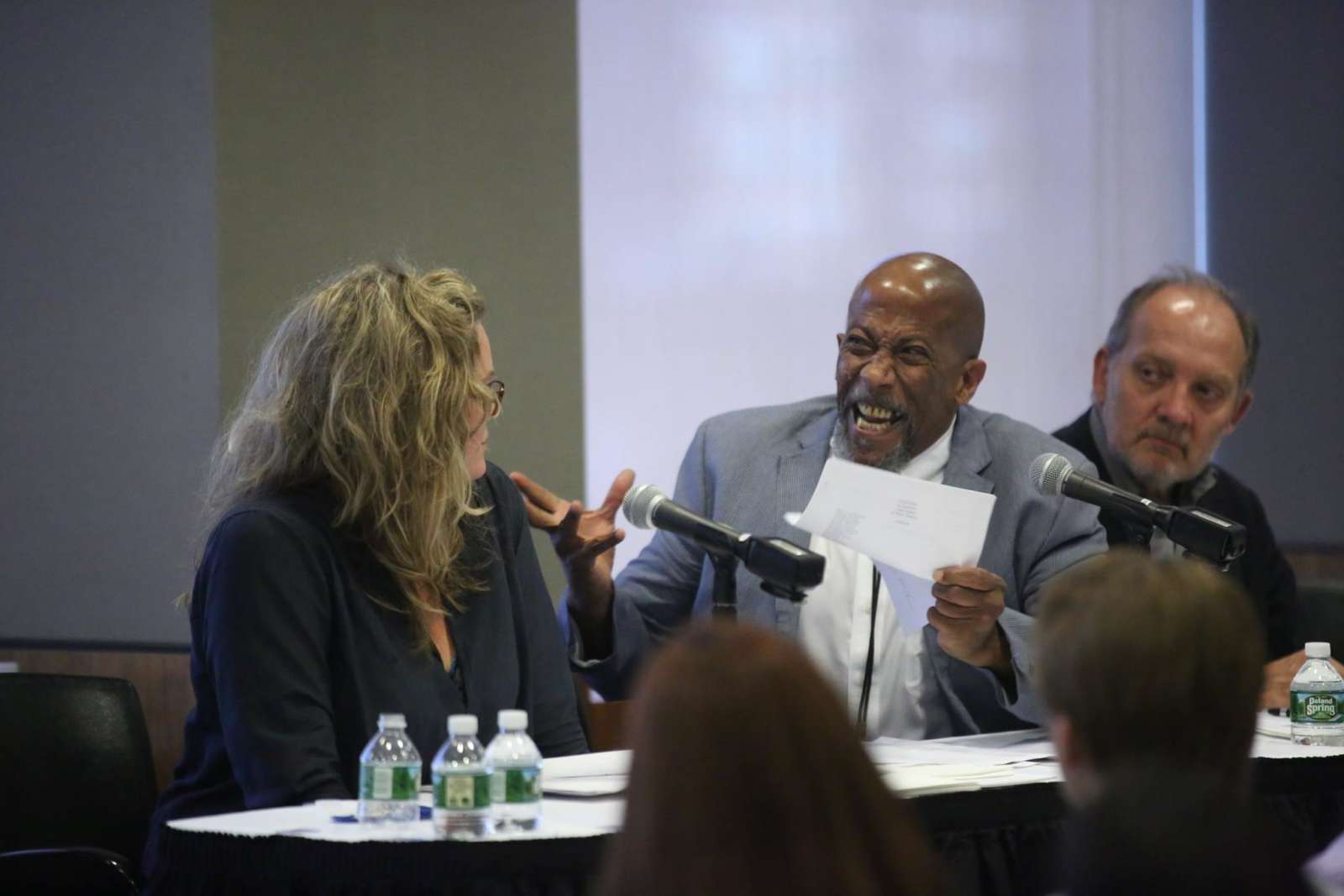
Reg E. Cathey plays Apollo in Theater of Law
Schulte, Roth and Zabel / 2017

Ana Reeder as The Furies
Schulte, Roth and Zabel / 2017
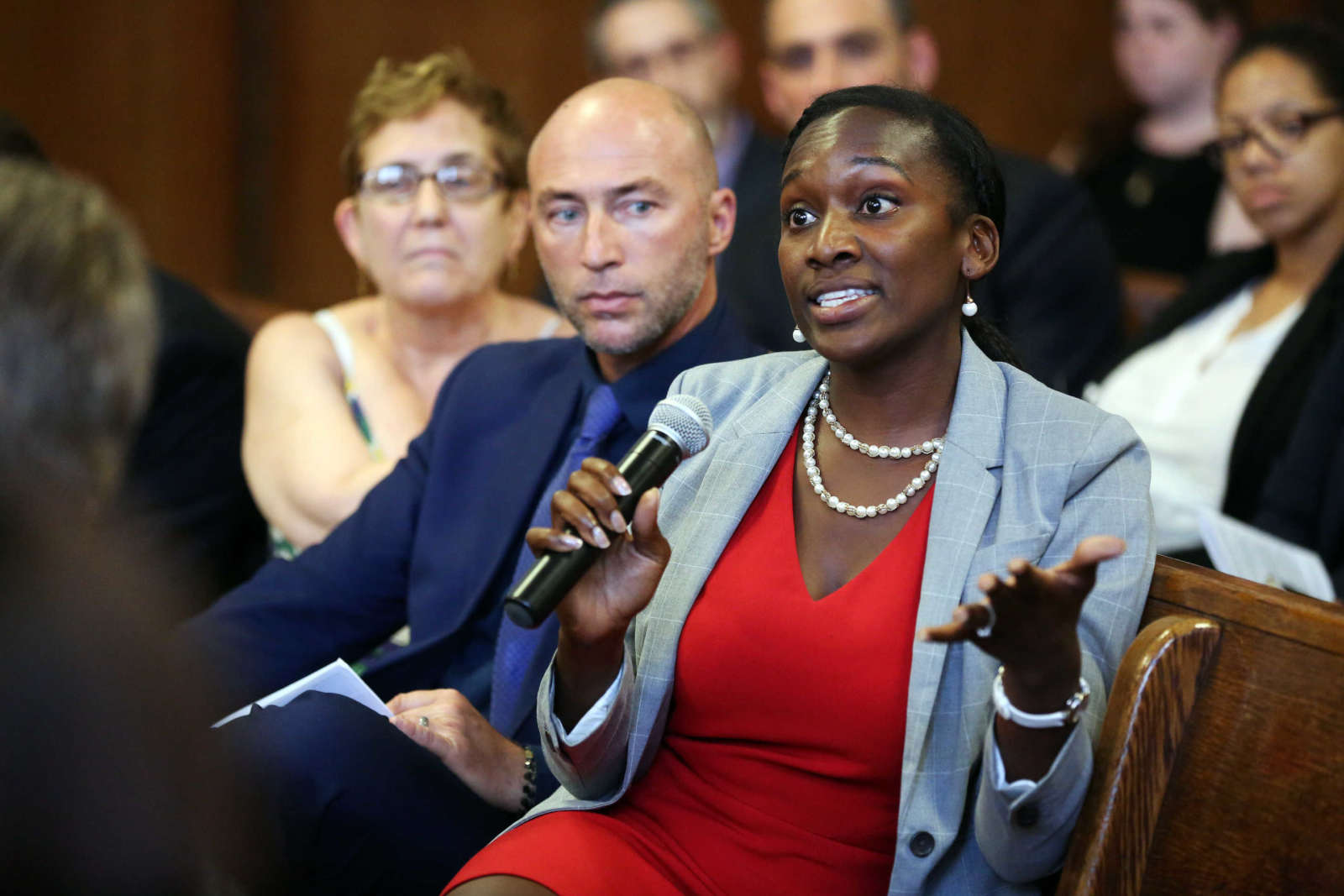
Audience member responds to Theater of Law
New York County Criminal Court / 2017
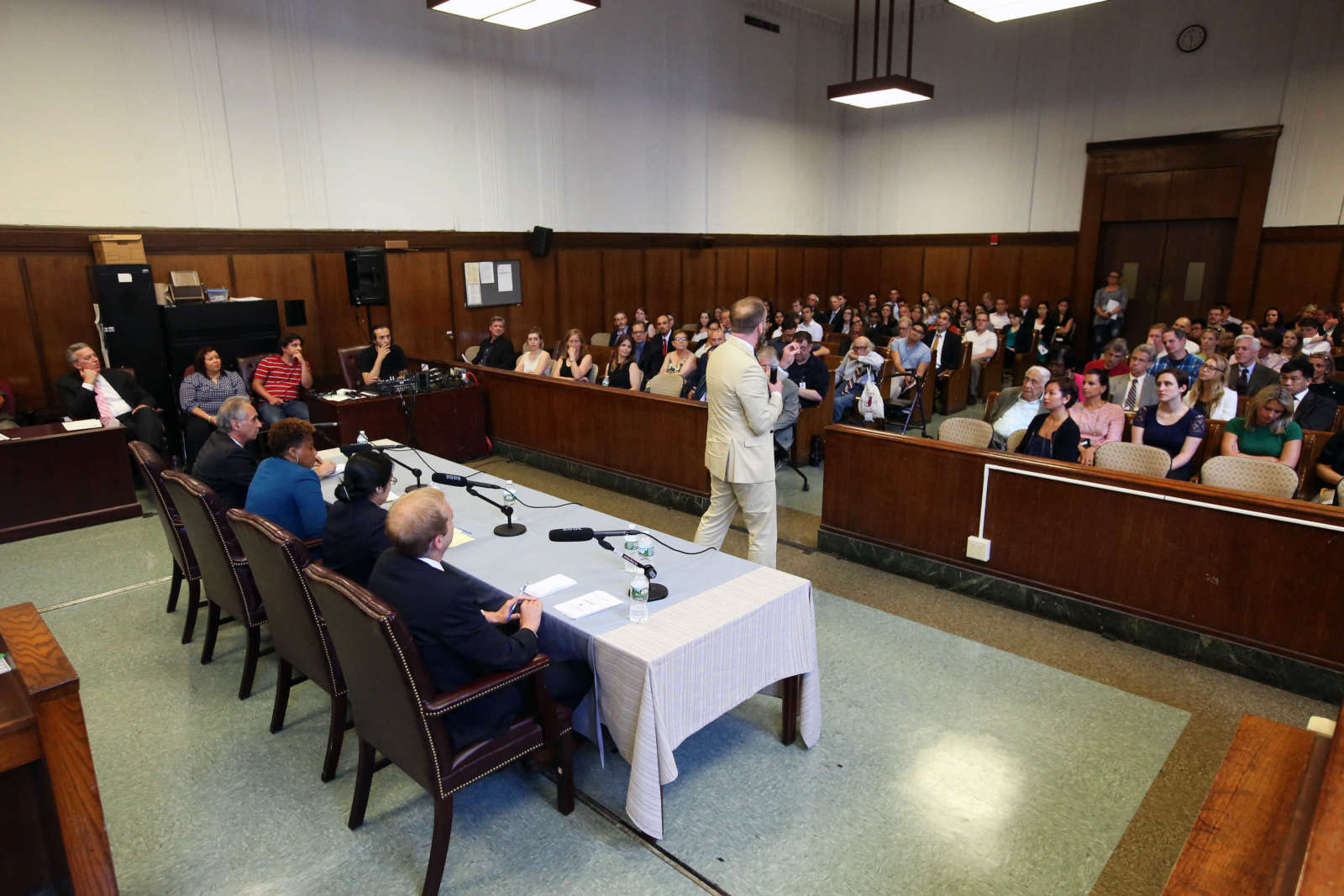
Bryan Doerries facilitates Theater of Law discussion
New York County Criminal Court / 2017
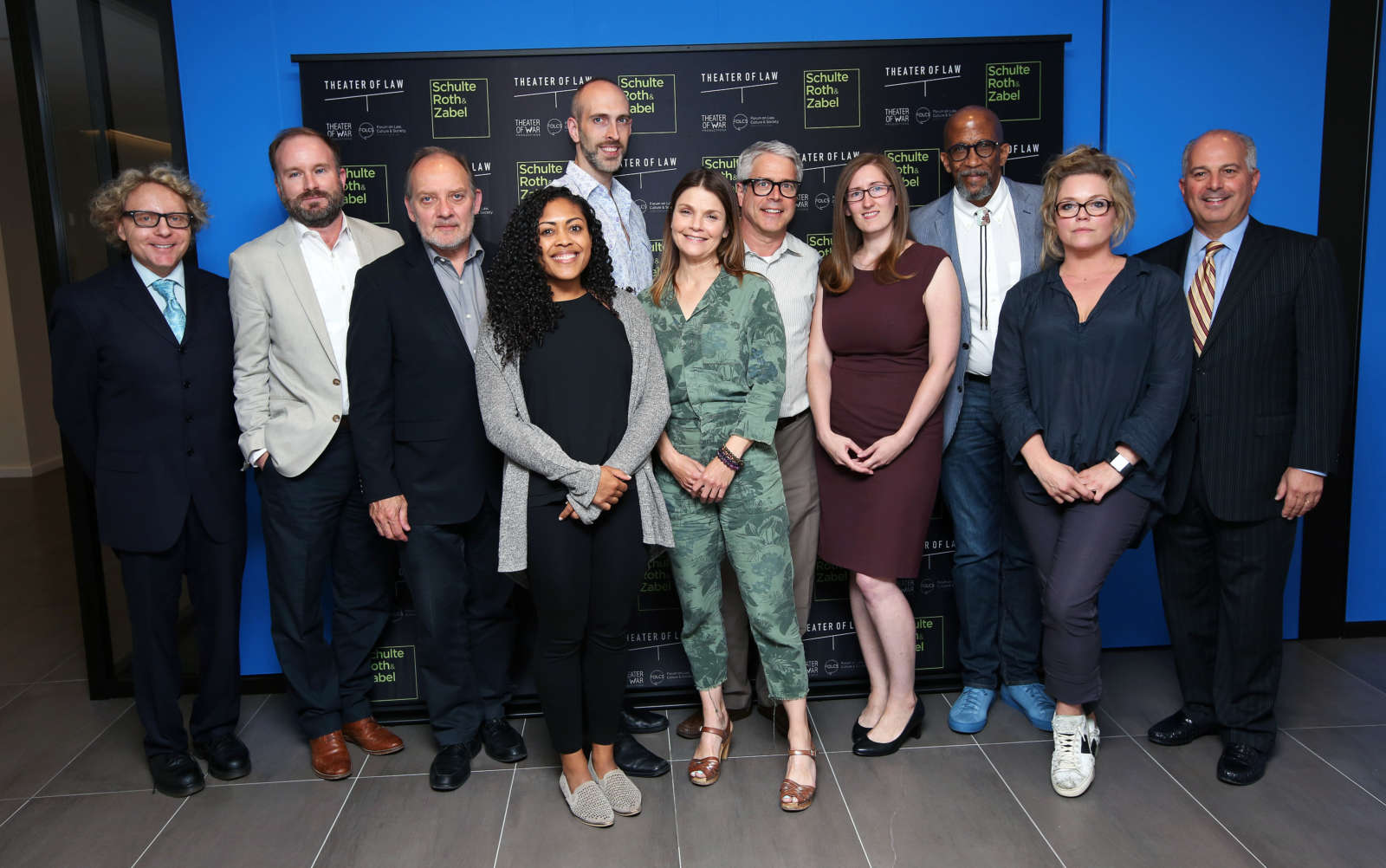
Schulte Roth & Zabel Presents a New Co-Production Between Theater of War Productions and the Forum on Law, Culture & Society The Premiere of: Theater of Law
2017
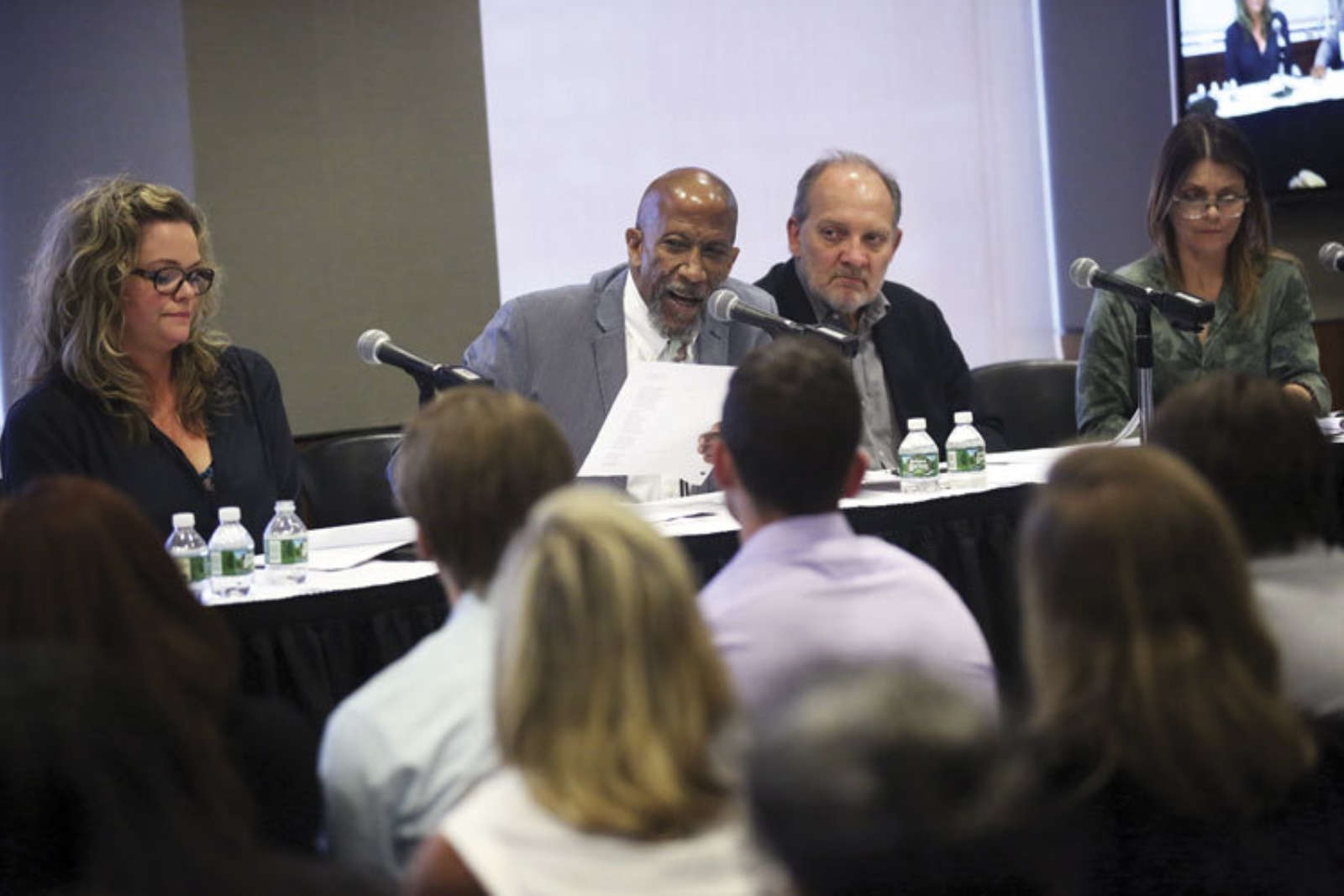
Law Firm Hosts an Evening of Art Imitating Life
2017
Explore Projects
-
 GenocideThe Investigation
GenocideThe InvestigationTheater of War Productions and the Museum of Jewish Heritage, in partnership with the National Yiddish Theatre Folksbiene, present readings of scenes Peter Weiss' play The Investigation, a piece of documentary theater adapted from the Frankfurt Auschwitz Trials of 1963-1965. This project centers on guided discussions about mass murder and its lasting impact upon individuals, families, communities, and countries throughout the world. Performed by a diverse cast, including international performers from communities affected by genocide, The Investigation seeks to generate powerful dialogue across cultures and communities about the human capacity for evil, as well as the systems and hierarchies that create the conditions for unthinkable violence.
-
 RacismAntigone in Savannah
RacismAntigone in SavannahDramatic readings of Sophocles’ Antigone with live music to frame powerful dialogue about honoring the dead and healing historical wounds.
-
 Addiction & Substance AbuseRum and Vodka
Addiction & Substance AbuseRum and VodkaThis project presents a one-man Irish play about a 24-year-old whose life is coming apart, due to drinking, in order to provoke discussions about alcoholism and addiction within diverse communities.








